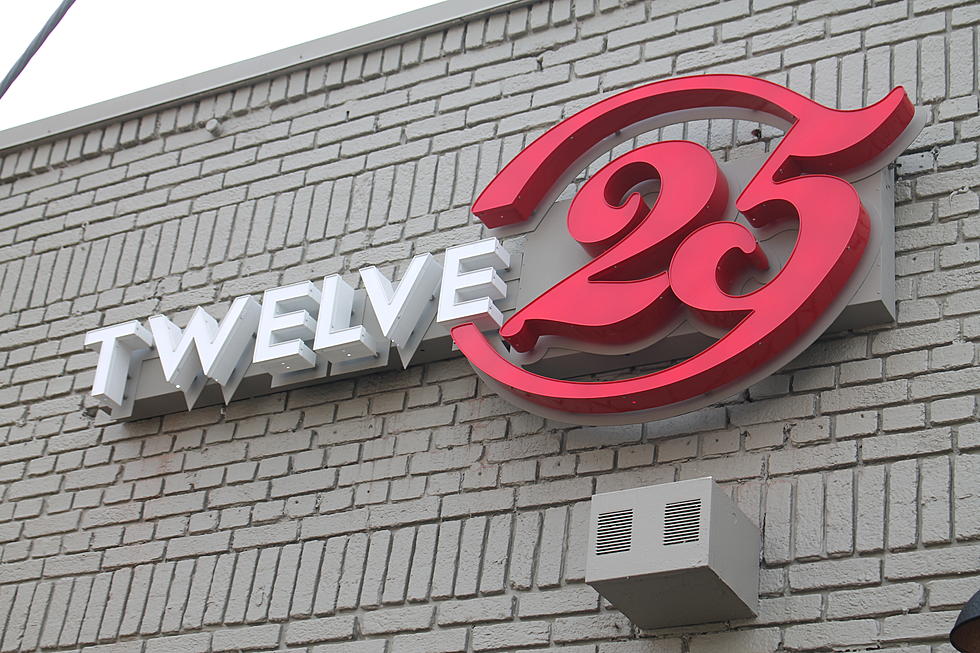
Policy Change Slashes Capacity of Tuscaloosa Sports Bar, Owners Allege Racism in Lawsuit
The owners of a popular sports bar on the Tuscaloosa Strip accused city leaders of racism in a scathing lawsuit filed this week over policy changes that will devastate the business.
At the center of the controversy is Twelve25, a restaurant on University Boulevard that becomes one of the city's busiest bars after 10 p.m.
Twelve25 opened in early 2020, when owner Jay Jarrett completely remodeled the space that used to house the El Rincon Mexican restaurant and said he wanted to bring ideas from clubs in Las Vegas, Nashville and Washington D.C. to Tuscaloosa.
Twelve25 would serve as a restaurant for around 10 hours a day, then convert to a bar for late-night business on the Strip.
The idea was met with fanfare at the time. According to the new lawsuit, city staff issued two different Certificates of Occupancy -- one allowing for 287 patrons while Twelve25 was primarily serving as a restaurant, and another allowing 519 people when no tables and chairs are present.
For years, this has allowed Twelve25 -- and other Tuscaloosa establishments operating as gastropubs -- to rearrange their space each night and maximize profits as a restaurant by day and a large bar by night.

Strip Shooting Sparks New Look at Gastropubs
City leadership has soured recently on gastropubs, though, as mayor Walt Maddox and Tuscaloosa Police Chief Brent Blankley and others have begun to see crowded bars as public safety hazards, not bustling revenue generators.
Those tensions, already building, boiled over earlier this year after the shooting death of 23-year-old mother Jamea Harris on the Strip in the pre-dawn hours on January 15th.
Harris and most of the people allegedly involved in the shooting had been partying at Twelve25 in the hours leading up to her killing, although there is no evidence the parties interacted inside the business itself -- the trouble began after everyone had already left.
Her death and all the controversy surrounding it have radically shaken Tuscaloosa and continue to have a ripple effect, including inciting fresh furor against gastropubs within City Hall.
"You have a lot of places in Tuscaloosa, not just The Strip, that masquerade as a restaurant, but they're really a bar and are protected by the state," Maddox said on a local radio show soon after the killing. "We're not tolerating this, we never tolerated it, but certainly, this has become hyper-sensitive, and we're going to be looking at a broad range of action."
The council has voted against allowing two new gastropubs in the wake of the killing, and earlier this month they added new language to municipal code that says "there shall be no dual occupant limit for restaurants and gastropubs to increase the occupant limit when furnishings are removed or reconfigured."
Before the vote, city attorney Scott Holmes framed the amendment as necessary to "clarify what the rules are in our code," not to write new rules out of whole cloth.
The change, which was immediately effective, slashes the Strip staple's late-night capacity by 240 patrons, which will obviously impact their ability to turn a profit.
The "Real Reason" Behind the Ordinance
In the 50-page lawsuit, attorneys for Twelve25 argue that by the very issuance of two separate Certificates of Occupancy, the city knew about and accepted the sports bar's split business model.
"The real reason behind the creation of the Ordinance was to specifically target Twelve25 and intentionally shut it down by destroying its dual occupancy limits," attorneys said in the suit.
The lawsuit accuses the city of changing these rules without notifying Twelve25 or allowing them to speak at the relevant meetings, even over the protestations of councilman Norman Crow, who said before the vote earlier this month that business owners impacted by the "clarification" should have been allowed to comment on it.
"Despite the enormous impact of the Ordinance on Twelve25's entire business model, and despite the Ordinance acting as a de facto revocation of Twelve25's higher occupancy limit certificate, [...] Twelve25 was given no notice or opportunity to be heard regarding the substance, impact or application of the 'amended' code sections prior to the passage of the Ordinance at the march 7 Meeting," attorneys said in the lawsuit.
The lawyers also note that Twelve25 is already contractually obligated to host events with more than the 287 patrons now allowed inside and are now in jeopardy of violating those contracts.
"The loss of its ability to have a larger occupancy load when tables and chairs are not present dramatically impacts Twelve25's business model, dramatically marginalizes Twelve25's business operations and relationships, and renders Twelve25 into a shadow of the establishment it has always been and was designed to be," attorneys said in the suit.
Allegations of Racism
The lawsuit pulls no punches in attributing the new changes to racism inside City Hall -- Jarrett is Black, and so too is a large portion of the bar's clientele.
"In reality, the Council Defendants and Defendant [Walt] Maddox are targeting Twelve 25 because it is minority-owned, it attracts many members of the Black Community to the Strip and it attracts significant numbers of customers away from already-established businesses on the Strip which have white owners."
"If these defendants were truly concerned about overcrowding on the Strip it should have similarly and significantly reduced the number of white-owned "bars" operating in the area which are owned and patronized by white people, several of which have higher capacities than Twevle25," they wrote.
The lawsuit accuses the city leaders of acting "knowingly, wrongfully, willingly, fraudulently, maliciously, beyond their authority, under a mistaken interpretation of the law, and in bad faith."
The suit names 10 defendants including the city itself, each of the seven members of the council, mayor Walt Maddox and a city staffer responsible for issuing certificate of occupancy.
The 14-count lawsuit accuses the city of violating due process, taking without just compensation, impairment of contractual obligations, "inverse condemnation," fraud and more.
The half-dozen attorneys representing Twelve25 are led by veteran Birmingham litigator Mark White. They asked for a temporary restraining order allowing the restaurant to operate as it always has, a declaratory judgment nullifying the amendment to the Ordinance and more.
The case has moved quickly and, after being filed Wednesday, has already been removed from circuit court at the request of the city and moved to federal court, where a judge decided not to issue the restraining order, allowing the new reduced capacity to stand.
As a matter of policy, the city does not comment on ongoing litigation.
For updates on the case as they develop, stay connected to the Tuscaloosa Thread.
Top Stories from the Tuscaloosa Thread (3/14 - 3/20)
More From Tuscaloosa Thread









